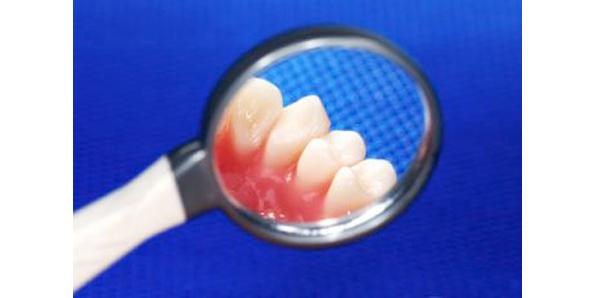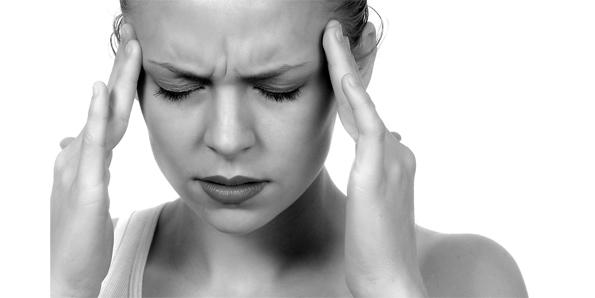
Since the online environment is full of health guides promoting the importance of nutrients for our body, it is safe to assume that everyone is aware of the important role vitamins and minerals play in the optimal functionality of the organism. What these nutrients actually do is lend a helping hand by facilitating a variety of biochemical reactions, from maintain the health of the eye tissues (vitamin A) to ensuring an efficient metabolic rate (complex B vitamins) and boosting the immune system (vitamin C).
Under normal circumstances, a person ensures an ideal intake of these nutrients via his diet. However, given the hectic lifestyles of modern man and the unsafe practices of the big corporations, the amount of nutrients we get from our meals is not nearly enough. In case you are wondering why a person should make sure he gets the recommended daily dose of vitamins, here are 10 examples of what could happen if you don’t have a sufficient amount of vitamins in your body.
1. Inflammation of the gums
 In the eventuality that you are constantly experiencing pain while you brush your teeth or when you chew due to your slightly swollen gums, then there are high chances you might be having a vitamin C deficiency. Mostly renowned for its uncontested ability to ward off the common cold and the flu, this nutrient also has a major role in keeping your gums and teeth healthy. The consequences of vitamin C deficiencies can be observed in sailors who are out at sea for extended periods and because they don’t have access to this nutrient develop various periodontal issues, including scurvy.
In the eventuality that you are constantly experiencing pain while you brush your teeth or when you chew due to your slightly swollen gums, then there are high chances you might be having a vitamin C deficiency. Mostly renowned for its uncontested ability to ward off the common cold and the flu, this nutrient also has a major role in keeping your gums and teeth healthy. The consequences of vitamin C deficiencies can be observed in sailors who are out at sea for extended periods and because they don’t have access to this nutrient develop various periodontal issues, including scurvy.
2. Insomnia
 According to various studies, people who have a hard time getting a good night’s rest might be suffering from a vitamin B12 deficiency. This nutrient has a crucial role in the first year of our lives and it is one of the organic compounds that have a major contribution in the formation of red cells. At the same time, B12 is the main regulator of melatonin, a hormone that essentially sets the circadian rhythms of the body. Therefore, if you had trouble with falling asleep lately perhaps you should consider B12 supplements or eating more meals with beef, lamb or seafood.
According to various studies, people who have a hard time getting a good night’s rest might be suffering from a vitamin B12 deficiency. This nutrient has a crucial role in the first year of our lives and it is one of the organic compounds that have a major contribution in the formation of red cells. At the same time, B12 is the main regulator of melatonin, a hormone that essentially sets the circadian rhythms of the body. Therefore, if you had trouble with falling asleep lately perhaps you should consider B12 supplements or eating more meals with beef, lamb or seafood.
3. Migraines
 Various clinical studies have shown that people who suffer from migraines and especially women who undergo excruciating headaches during menstruation usually have low vitamin E amounts stored in their bodies. While it is true that vitamin E deficiency is actually very rare, the side effects are extremely ugly and the treatment is typically performed under the supervision of a licensed nutritionist or a physician.
Various clinical studies have shown that people who suffer from migraines and especially women who undergo excruciating headaches during menstruation usually have low vitamin E amounts stored in their bodies. While it is true that vitamin E deficiency is actually very rare, the side effects are extremely ugly and the treatment is typically performed under the supervision of a licensed nutritionist or a physician.
4. Night sweats
 In case you are constantly waking up in wet bedding due to excessive sweating during the night, then there are high chances you might have a vitamin D deficiency and consequentially, calcium. In general, night sweats accompanied by hot flashes are symptoms mostly experienced by women about to reach menopause and who are prone to osteoporosis. However, research shows that smokers and people who typically drink a lot of coffee during the day could have the same levels of vitamin D and calcium as some women during menopause.
In case you are constantly waking up in wet bedding due to excessive sweating during the night, then there are high chances you might have a vitamin D deficiency and consequentially, calcium. In general, night sweats accompanied by hot flashes are symptoms mostly experienced by women about to reach menopause and who are prone to osteoporosis. However, research shows that smokers and people who typically drink a lot of coffee during the day could have the same levels of vitamin D and calcium as some women during menopause.
5. Anemia
 If you are feeling dizzy all the time, are constantly tired (waking up tired after 7-8 hours of sleep) and don’t have the energy to carry out even the simplest of tasks, then you might be suffering from anemia or severe vitamin D deficiency. Besides calcium, vitamin D is responsible for a wide variety of mineral and other vitamins absorption, so basically without this nutrient your body cannot get the resources it needs to function properly.
If you are feeling dizzy all the time, are constantly tired (waking up tired after 7-8 hours of sleep) and don’t have the energy to carry out even the simplest of tasks, then you might be suffering from anemia or severe vitamin D deficiency. Besides calcium, vitamin D is responsible for a wide variety of mineral and other vitamins absorption, so basically without this nutrient your body cannot get the resources it needs to function properly.